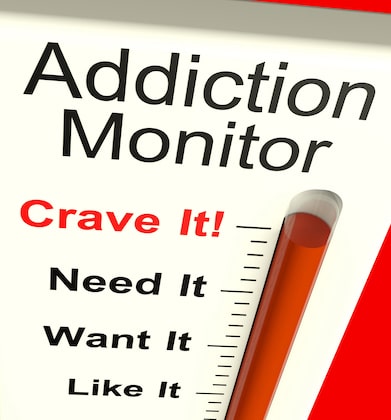
A person who has an addiction to plastic surgery wants to make ongoing changes to their appearance. Even if they undergo multiple cosmetic procedures, they still might not be satisfied with their results. In this article, we will cover the reasons why plastic surgery addiction occurs and what can be done to address the issue.
 According to the American Society of Addiction Medicine (ASAM0, addiction is defined as a compulsive behavior that is performed even if the behavior provides harmful results. In other words, if a person feels that it is necessary to have a cosmetic procedure on a continual basis because they do not like the results or do not gain any type of satisfaction from the procedure, they might have an addiction to plastic surgery. Some of the common signs of plastic surgery addiction include:
According to the American Society of Addiction Medicine (ASAM0, addiction is defined as a compulsive behavior that is performed even if the behavior provides harmful results. In other words, if a person feels that it is necessary to have a cosmetic procedure on a continual basis because they do not like the results or do not gain any type of satisfaction from the procedure, they might have an addiction to plastic surgery. Some of the common signs of plastic surgery addiction include:
One of the most common reasons for an addiction to plastic surgery can stem from a psychological disorder, such as body dysmorphic disorder (BDD). In general, BDD is a psychiatric illness which causes a person to be preoccupied with some sort of perceived flaw in their appearance. It can also make a person have a distorted view of their body image. The desire to address these perceived flaws makes the person want to have surgery to treat their dissatisfaction with their appearance. Many people believe that plastic surgery will be the solution to their problems no matter how many procedures they need to undergo to change their look. Because of this belief, they often enter the plastic surgery process with unrealistic expectations about the type of results they will enjoy after the procedure.
According to a review from 2020 that took a look at cosmetic surgery addiction in South Korea, a link was discovered between those who seek to have cosmetic surgery and the body image of the person along with their self-esteem, and psychological factors. The authors of the review also suggested that pressure in social situations to meet certain beauty standards can play a part in developing an addiction to cosmetic surgery.
The past few years have also seen numerous stories being reported regarding the part social media plays in the development of plastic surgery addiction. The use of social media can have a negative impact on how a person views their appearance. Patients are more likely to want plastic surgery if they have a negative opinion about their appearance when viewing their social media as well as viewing videos and photos related to plastic surgery on social media. While social media might not be a direct cause of plastic surgery addiction, it does seem to have an association with an overall dissatisfaction in the physical appearance of some people.
The desire to have plastic surgery on a regular basis can even stem from childhood trauma, such as bullying, that was caused by peers or family members. This childhood trauma might have resulted in a negative impact on the psychological development of a person and influenced the performance of plastic surgery in adulthood.
There are multiple options that can be used to treat plastic surgery addiction. Some of these treatment options include:
The main thing that someone who is suffering from plastic surgery addiction needs to know is that help is available to help them treat and manage their addiction issues. They can find help by speaking with a doctor or mental health professional as well as seek help from organizations such as the Body Dysmorphic Disorder Foundation (BDDF) or the American Psychological Association. An early detection or diagnosis of BDD might help prevent an addiction to plastic surgery or help a person receive help sooner in life.
It might also be helpful for a person to speak with a counselor or therapist or even talk about the issue with friends and family members that they trust. These trusted people can give the person some6 additional perspective on their issues and even hold them accountable to find help in the future.
- MA